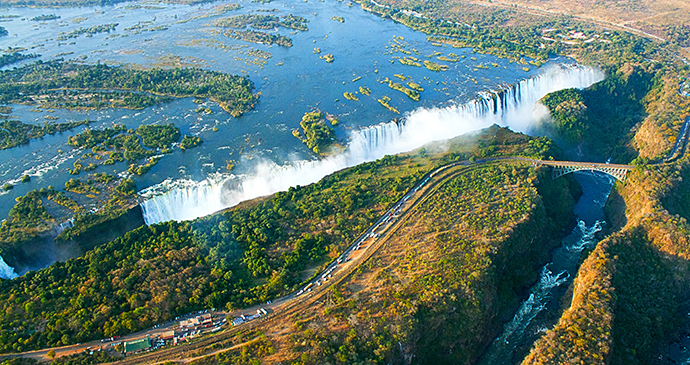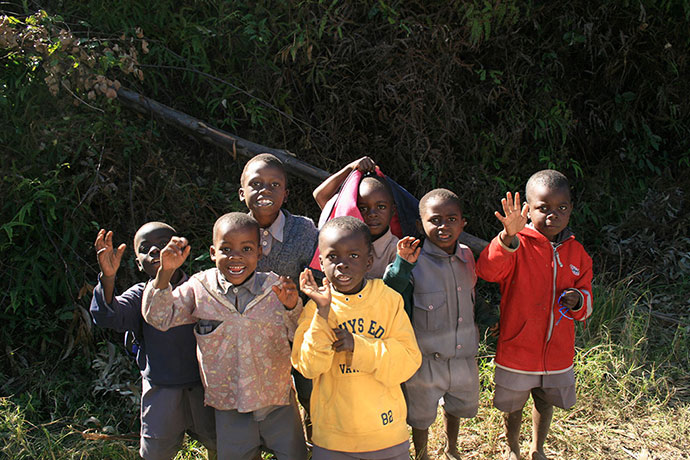It’s safe to say that tourism in Zimbabwe, at the time of writing, is a shadow of its former self – with the exception of Victoria Falls, Hwange National Park and the Middle Zambezi area. People were either frightened to visit, believing it to be dangerous or they, particularly Britons and South Africans, were voting with their feet and deciding not to support the current regime by boycotting the country. Below we have tried to answer potential travellers’ two most pertinent questions. They are very much our own views but they’re born out of many years living in Zimbabwe and countless miles of driving all around the country through good times and bad.
Is it safe?
Emphatically, ‘Yes’. It’s generally recognised by experienced travellers that ordinary Zimbabweans are probably the most friendly and welcoming citizens of all the countries in the region. They used to enjoy and value having us in their country; then we stopped visiting and now they desperately want us back.
When exploring the entire country for this edition (and previous ones), we adopted nothing more than the standard, sensible and obvious safety measures recommended for independent travel anywhere in the world. Far from feeling intimidated or nervous, we have been met everywhere by incredibly friendly, welcoming and helpful people. That includes the authorities and the police.
Police roadblocks are no longer ubiquitous and the attitude of those manning them has improved too. Don’t worry, though. If you approach the road checks in a relaxed manner, these encounters frequently involve a few laughs and jokes and invariably end with your being wished a safe journey. They can certainly be a frustrating inconvenience but in our lengthy experience, never worse than that.

Despite the above, it would be naive not to recognise that crime has increased as a result of the economic implosion and its legacy of unemployment, but we still regard Zimbabwe as one of the safest countries we’ve ever visited and lived in. Any violence you read about is invariably and exclusively politically motivated and does not involve tourists or tourism areas.
So please think about this: generally speaking the worldwide media rushes to places where there’s a bad news story. In Zimbabwe this tends to be during the weeks prior to elections and of course the country always manages to deliver newsworthy material. But the moment the results are declared the journalists all dash off to the next trouble spot and Zimbabwe returns to normal and disappears from the headlines. Sadly though, as said before, mud sticks.
Is it moral?
The ousting of Robert Mugabe in 2017 and his subsequent death in 2019 solved a worry for many people about the ethical conundrum of visiting Zimbabwe. Sadly, the post-Mugabe era (since 2017) has been dogged by continual reports of human rights abuses including the shooting of civilian protesters on two separate occasions in 2018 and 2019. The new government has already been charged by the international community with rigging the 2018 elections and continuously using violence against political opponents and their supporters.
Following the economic collapse of the 2000s, probably four to six million people, nearly a third of Zimbabwe’s population, left the country as either economic or political refugees. A large proportion of those who stayed faced potentially fatal conditions such as malnutrition, AIDS, TB, malaria, cholera and other illnesses, made all the more risky due to an almost complete lack of publicly accessible medical products and facilities. Regrettably these medieval diseases to raise their ugly heads from time to time, in small outbreaks which are usually quickly contained and cured.
So yes, the country admittedly has a lot not to be proud of. As a direct result of all this, many potential tourists have decided to boycott this country, believing that by visiting Zimbabwe they would be helping the current regime not only financially but also by giving it a measure of legitimacy. Should you therefore follow the example of hundreds of thousands of people who have already boycotted Zimbabwe in the belief that it will make a significant difference?
Throughout the 19 years following the farm invasions of 2000 and onwards, we can’t find anything or anyone to point to any evidence that the tourism boycott has made one jot of difference. At least, no positive difference. This is simply because the drop in tourist numbers hasn’t directly affected anyone in government and, perhaps surprisingly to many, government revenue has hardly suffered.

The harsh reality is that in Zimbabwe’s case the boycott has only had a negative effect on ordinary citizens. Tourism used to provide employment for thousands of people and supported countless others who provided peripheral services, but many of these jobs were lost when travel agents deleted Zimbabwe from their brochures and tourists took avoiding action. People who used to rely on tourism became penniless and desperate and joined hordes of other unemployed, migrating – usually illegally – to nearby countries where most found abject misery and violence rather than the promise of a better future they were hoping for.
It is now 2019 and things are slowly changing for the better with a gradual, but consistent increase in visitors and these numbers are growing year on year. Last year was the best year in tourist numbers since the peak of 1999. Tourism is also benefiting from the lack of governmental travel advisories or bans in recent years. As a result, some tourist properties are being upgraded while many others are adding more rooms. Better still, there’s an encouraging increasing number of newly built accommodation coming on the market, all resulting in a much needed increase in employment.
Wildlife is also benefiting as the impoverished national parks organisation (Zimbabwe Parks and Wildlife Management Authority, or ZPWMA) relies heavily on the private camps and lodges to provide essential infrastructure support. Without this input from tourism, many waterholes go unpumped, roads deteriorate, antipoaching patrols virtually cease, and subsistence poaching goes unchecked.
We are aware of all the counter-arguments, many of which deserve serious consideration. Yes, the government does benefit from visa fees, VAT and tourism taxes but these add up to a tiny percentage of your tourism spend.
We have taken a strong pro-tourism stance after careful consideration of the pros and cons, but for us, the most persuasive argument comes from all the many Zimbabweans we meet, ordinary citizens all of whom, without exception, earnestly want tourists to return. None of them can understand how staying away from their country can possibly help them. Neither can we. We’ve tried a boycott and that didn’t work so it’s time for a different approach. In short you will do much more to help the country and its wonderful people by visiting it, rather than boycotting it.
Keen to explore more of Zimbabwe? Start planning your trip with 10% off our guide:
